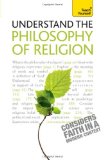Most of these notes were produced for students taking papers in Philosophy of Religion and Ethics at A level, but they should be of interest to all those exploring these subjects.
Please keep in mind that some of them are based on lectures given some years ago. Although the basic information and arguments remain valid, make sure you check more recent material as well. I shall be up-dating these notes from time to time, so do check back.
You may freely copy my notes for your personal use only.
If you have any questions or comments, please email me by clicking here.
... fast down to Ethics

The Ontological Argument
This page on the Ontological Argument includes some material taken from my book Introduction to Philosophy and Ethics supplemented with further comments and reflections.
Faith and Reason (background to Anselm)
Notes on Faith and Reason, serve as background to Anselm's Ontological Argument, pointing out distinctions in the relevant Latin terms in 'faith seeking unerstanding' and 'I believe in order to understand.'
The Design Argument
I have revised and posted sets of notes on The Argument from Design, based on the relevant sections in my Introduction to Philosophy and Ethics. These are supplemented by the notes on the Anthropic Principle and Argument.
The Cosmological Argument
The Cosmological Arguments gives a basic outline of Kalam Argument and the Cosmological Arguments from Aquinas. But students doing this topic should also see also the chapter on 'The Origins of the Universe' in Religion and Science.
The Anthropic Principle
 Here is a short outline of the Anthropic Principle and Argument, for students looking at the Argument from Design, or issues in Religion and Science.
Here is a short outline of the Anthropic Principle and Argument, for students looking at the Argument from Design, or issues in Religion and Science.
Religious Language
Language explores issues arising from Wittgenstein's Tractatus, Logical Positivism, Verification and 'Language Games' , both generally and in relation to religious language, with brief notes on 'experiencing as', 'believing in', analogy, myth and symbolism. (This page conflates my earlier notes on religious language.)
Religious Experience
Religious Experience What is it? Is it a natural phenomenon? What kinds of experience are called 'religious'? Is it what is experienced, or how it is experiences that makes it religious?
Religion and Philosophy
 Is the Philosophy of Religion a mistake? Can the Philosophy of Religion really get to grips with what religion is about? But what does that have to do with a photo of mountains, or Wittgenstein's suggestion? Take a look.
Is the Philosophy of Religion a mistake? Can the Philosophy of Religion really get to grips with what religion is about? But what does that have to do with a photo of mountains, or Wittgenstein's suggestion? Take a look.
Miracles, God and the World
Miracles - a key topic for religion and what the idea of 'God' implies for our understanding of the world. It relates to many other topics in the interface between science and religion.
The Problem of Evil
The Problem of Evil - These notes have been revised, with clear section headings and an outline of the Irenaean and Augustinian approaches, along with the Free Will Defence, a brief look at the impact of this problem on ideas of God and a note on the distinction here between philosophy and theology.
Kantian Ethics
Kant's ethical theory outlines his 3 forms of the Categorical Imperative, and provides a context for them in terms of his 'Copernican Revolution' and the postulates of the pure practical reason.
Utilitarianism
Utilitarianism offers a basic set of outline notes, including Bentham, Mill, Preference Utilitariaism and an assessment of some of its problems and advantages as an ethical theory.
Natural Law Ethics
Natural Law Ethics These notes give the background to the Natural Law approach to ethics, along with my comments and a rant about economics and the need for a natural law approach to ideas about society.
I have added an article, originally published in 'Dialogue', entitled 'Can Natural Law escape Aquinas?' to augment the notes on Natural Law for keen students and the general reader. To read it, click here.
Meta-ethics
Meta-ethics: these notes offer a broad introduction to Meta Ethical theories, including emotivism and prescriptivism. They draw on material from An Introduction to Philosophy and Ethics.
The use of thought experiments in ethics
Thought experiments are increasingly being used in ethical arguments, but students should be aware of their limitations. Richard Baron has produced a really useful paper on this, to see it click here.
Thinking about Examinations?
For some generic advice on revising for examinations and how best to use your time on the day, click here.




